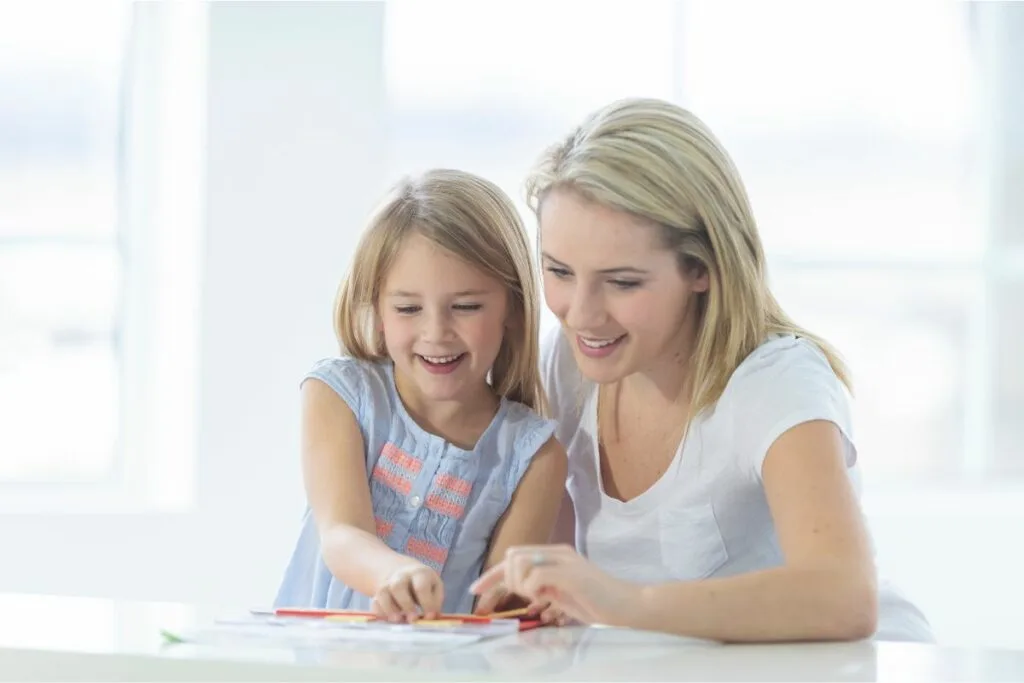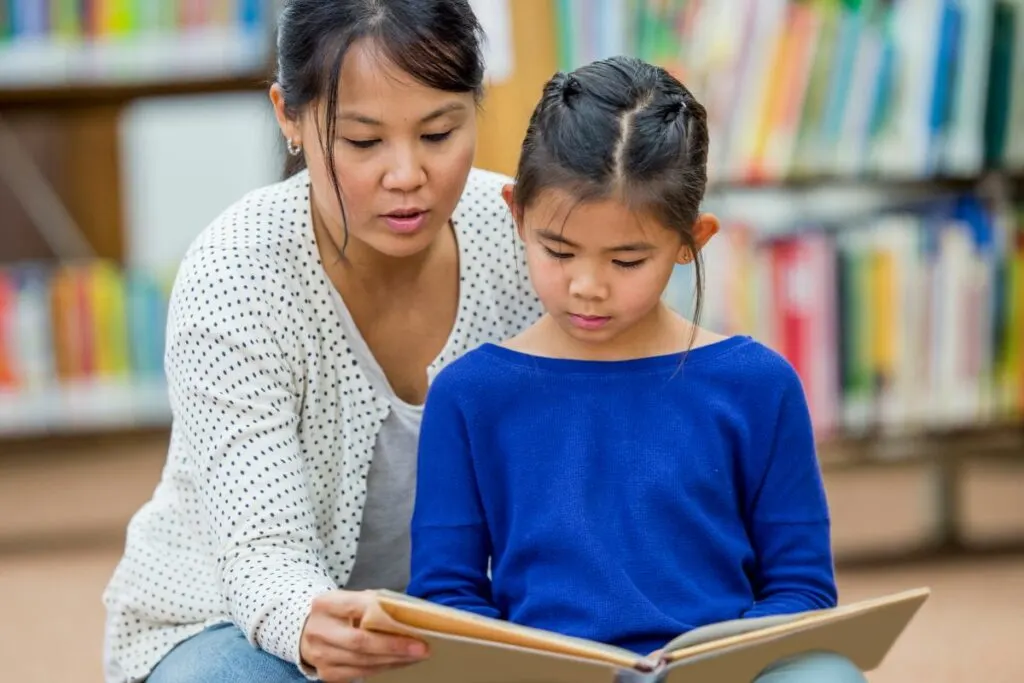In the expansive landscape of education, the paths of homeschooling and unschooling stand out as alternatives that resonate with parents seeking a personalized approach to their children’s learning.
As we dived into the depths of both homeschooling and unschooling and explored their philosophies, practices, and outcomes, we slowly but surely realized the benefits that both educational pathways offer to modern, forward-thinking families.

Choosing The Best Education For Your Children
In the vast realm of educational choices, we found ourselves contemplating the paths that would align best with our values and aspirations for our children, and homeschooling and unschooling emerged as compelling options, each beckoning us toward a different approach to education.
The Essence Of Homeschooling
Homeschooling, as we defined it, involves parents taking charge of their children’s education within the home environment, and this approach provided us with the opportunity to tailor the curriculum to our children’s unique learning styles, allowing us to create a more individualized and flexible educational journey.
The structured learning environment we crafted mirrored that of traditional schools and the routine of balanced academic pursuits and extracurricular activities that they offer.
One significant advantage we discovered was the ability to choose and modify the curriculum, giving us control over the subjects taught and allowing for flexibility based on our children’s evolving interests.
Unschooling Unveiled
Unschooling, in contrast, was a departure from structured learning as it involves letting go of conventional curricula and allowing education to unfold organically through daily life experiences, an approach that encourages children to pursue their passions, turning learning into a self-driven endeavor.
Unschooling provides a more flexible rhythm, as learning happens in diverse settings – at home, in nature, and within the community.
In essence, the world becomes a classroom, meaning that education is confined by the conformity eschewed by traditional education
Socialization – Bridging The Gap
In the realm of socialization, homeschooling and unschooling took distinct approaches.
Homeschooling allowed for engagement in networks and co-ops, providing ample socialization opportunities, and our children participated in group activities, sports, and field trips, fostering valuable friendships.
Unschooling, we found, encouraged natural socialization, and our children interacted with diverse age groups and engaged in community activities, enhancing their social skills in a real-world setting.
Assessing Progress – Evaluation in Homeschooling
Homeschooling often involved periodic assessments, quizzes, and exams, and we maintained a portfolio of our children’s work to showcase their academic achievements, as this traditional approach to assessment offered a tangible way to measure progress and identify areas for improvement.
Alternative Evaluation In Unschooling
In unschooling, we shifted from conventional assessments to more holistic evaluation methods and focused on observing our children’s growth in critical thinking, problem-solving, and practical life skills, as the emphasis was on the application of knowledge in real-world situations rather than relying solely on standardized tests.
Lifelong Learning – Homeschooling’s Impact On Future Education
Contrary to popular misconceptions, homeschooling laid a robust foundation for a love of learning.
Our children, having experienced the joy of education tailored to their needs, developed a mindset conducive to lifelong learning, and the adaptability and self-direction instilled through homeschooling provided them with the tools needed to thrive in higher education and adulthood.
Beyond Grades: Unschooling’s Philosophical Impact
Unschooling, we observed, had a profound impact on our children’s perspectives.
They viewed learning not as a means to an end but as a continuous journey, finding value in every experience, and the emphasis on self-directed exploration engendered a love for learning that transcended the confines of traditional academic achievement.
Homeschooling adhered to state regulations and requirements and compliance with documentation and standardized testing where necessary, ensuring our approach aligned with legal frameworks and understanding the legal aspects of homeschooling was crucial to maintaining a balance between educational freedom and regulatory compliance.
Philosophical Foundations – The Roots of Homeschooling
Homeschooling often stemmed from diverse motivations, including dissatisfaction with the traditional educational system, religious beliefs, or a desire for a more tailored education.
Recognizing and understanding these philosophical underpinnings helped shape our approach and commitment to homeschooling.
Philosophical Foundations – The Roots of Unschooling
Unschooling, rooted in the philosophy of John Holt, emphasized trust in a child’s innate ability to learn as it rejected the notion of forcing knowledge upon children.
It focused on encouraging a love for learning, and embracing this philosophy required a paradigm shift in our perception of education and a deep trust in our children’s intrinsic motivation to learn.

Journeying Together – The Impact On Family Dynamics
Homeschooling’s Family Bond
The shared educational journey that homeschooling revolves around strengthened our family bond, and learning became a collective endeavor, creating shared memories and deepening our understanding of each other.
It allowed us to spend more quality time together, which forged a strong sense of connection and mutual support.
Unschooling’s Communal Approach
Unschooling emphasized collaboration within the family and our children, being active participants in decision-making.
It contributed to a democratic approach to their education, which laid a foundation on which they could build a sense of responsibility as the communal nature of unschooling extended beyond the immediate family, encouraging connections with the broader community as a whole.
Preparing For The Future – Homeschooling And College
Contrary to misconceptions, we discovered that homeschooled students could excel in college as the admissions processes, in our experience, valued diverse educational backgrounds, recognizing the unique strengths of homeschooled applicants.
Far from limiting future educational opportunities, homeschooling actually provided a solid foundation for higher learning.
Beyond Academics – Unschooling And Life Skills
Unschooling’s emphasis on real-world experiences prepared our children not just academically but also provided practical life skills.
From financial literacy to problem-solving, they developed a well-rounded skill set that extended beyond the traditional realm of academia.
Homeschooling’s Tech Integration
In our homeschooling journey, we embraced technology as an educational ally as digital resources, educational apps, and online courses enriched our curriculum, providing a contemporary dimension to our children’s learning experiences.
Integrating all aspects of technology allowed us to adapt to the demands of the digital age while providing our children with valuable skills for the future.
Unschooling’s Organic (Tech) Exposure
Unschooling, being inherently flexible, allowed for organic technology exposure, which helped our children learn to navigate digital platforms as part of their self-directed exploration, adapting to the demands of the digital age seamlessly.
Surprisingly, unschooling’s philosophy encouraged a balanced and purposeful use of technology, emphasizing its role as a tool for learning and exploration in an unconventional age.
Homeschooling’s Individualized Support
Homeschooling proved advantageous in catering to the unique learning needs of our children as we could adapt teaching methods, pace, and materials to accommodate different learning styles, providing a supportive environment for special educational needs.
The individualized support offered by homeschooling facilitated a tailored approach that addressed our children’s specific educational requirements and allowed them to evolve at the same pace as their life journeys unfolded.
Unschooling’s Inclusive Philosophy
Unschooling, with its emphasis on individual interests, naturally accommodated special educational needs as the fluidity of its approach allowed for personalized adaptations, ensuring that learning challenges were met with patience and creativity.
Unschooling’s inclusive philosophy embraced the idea that every child learns differently, creating an environment where diverse learning needs could be met with flexibility and understanding according to individual needs and abilities.
Time Management – Balancing Learning and Life Skills
Homeschooling’s Structured Time
One aspect we appreciated in homeschooling was the structured approach to time management as it instilled discipline in our children and taught them the importance of allocating time for learning, chores, and extracurricular activities, which was, and is a critical life lesson and lies at the heart of understanding how the working world has, and will, always function.
Unschooling’s Fluid Time Dynamics
Unschooling, with its emphasis on learning through life experiences, allowed for a more fluid approach to time, meaning our children learned time management organically as they balanced their pursuits and responsibilities in a less regimented manner.
This flexible approach to time encouraged our children to develop a sense of autonomy in managing their time and engendered a natural understanding of the ebb and flow of life.
Cultural Exploration – Broadening Perspectives
Cultural Integration And Learning
Through homeschooling, we had the opportunity to integrate cultural studies seamlessly into our curriculum.
Our children explored various cultures through literature, history, and interactive activities, which encouraged them to develop a broad and expansive global perspective.
Unschooling, with its emphasis on real-world experiences, allowed for immersive cultural learning, community events, and travel, broadening their understanding of the world beyond textbooks.
Life might begin in the classroom, but it always extends far beyond the horizon, a credo that unschooling seems to have to heart.
Resilience Building – Homeschooling In Challenging Times
Adapting to change is a crucial skill, and homeschooling demonstrated its resilience during challenging times, such as the global pandemic.
the flexibility of the homeschooling model allowed us to seamlessly transition to remote learning, maintaining continuity in our children’s education, and that adaptability in the face of adversity meant that it became a valuable asset that allowed children to face the uncertainties of a rapidly changing world with resilience.
Entrepreneurial Mindset – Unschooling’s Influence On Creativity
Creativity and innovation are the cornerstones of education, and unschooling excelled in this aspect as its emphasis on passion-driven learning cultivated an entrepreneurial mindset in our children.
It helped them to explore their imagination-driven instincts, delving into projects that fueled their souls and encouraged innovative thinking, preparing our children for a future that demands inventive thinking.

Nature As A Classroom – Learning Beyond Four Walls
Homeschooling’s Nature Integration
We discovered that homeschooling provided the flexibility to incorporate nature into our daily learning experiences, and outdoor activities, nature walks, and ecological studies became integral components of our curriculum.
This allowed our children to connect with the natural world and develop an appreciation for the environment.
Unschooling’s Nature-Centric Philosophy
Unschooling’s philosophy aligned seamlessly with nature-centric learning and allowed our offspring to explore the outdoors as an extension of their classroom.
Learning about ecology, biology, and environmental stewardship through hands-on experiences instilled a sense of responsibility towards the environment and a commitment to making the world of tomorrow better than it was yesterday.
Community Involvement – Social Learning Beyond The Family
Engaging in homeschooling co-ops facilitated community involvement and participation in group activities, workshops, and collaborative projects, expanding our children’s social circles beyond the family.
Unschooling, on the other hand, emphasizing community and real-world connections, encouraged our children to actively participate in local events, volunteer initiatives, and collaborative endeavors, building a sense of social responsibility, which in turn helped them to understand the importance of contributing to society.
Preparing For Diverse Learning Styles – A Homeschooling Advantage
Tailoring To Learning Styles
One of the strengths we found in homeschooling was the ability to tailor teaching methods to suit individual learning styles.
So whether a child is an auditory learner, visual learner, or kinesthetic learner, homeschooling accommodated diverse learning preferences, and the adaptability of homeschooling allowed us to address our children’s unique learning styles, ensuring that the educational experience was personalized and effective.
Nurturing Critical Thinking – Unschooling’s Emphasis
Freedom For Critical Exploration
Unschooling, by allowing children the freedom to explore their interests deeply, nurtured critical thinking skills, and ours learned to question, analyze, and form opinions independently.
This prepared them for a world that demands thoughtful, informed individuals, and its emphasis on critical exploration went beyond rote learning, encouraging our children to think critically and engage with the world around them.
Conclusion
This comprehensive exploration of homeschooling and unschooling spans a variety of aspects, from the philosophical foundations to the practical considerations of each approach.
As we reflect on our educational journey, it becomes evident that the choice between homeschooling and unschooling was not a binary decision but a dynamic process of aligning our educational philosophy with the unique needs and aspirations of our children.
In essence, it’s not just about homeschooling or unschooling; it’s actually about crafting an educational narrative that resonates with the rhythm of your family life and the unique melody and potential of your children and what they need, want, and deserve.
Further reading: Homeschooling vs traditional schooling – understanding the differences.
- Homeschooling In High School: Pros And Cons - February 24, 2024
- How Do I Withdraw My Child From School To Homeschool? - February 23, 2024
- How To Not Go Crazy Homeschooling Kids: A Guide For Frazzled Parents - February 22, 2024









Leave a comment